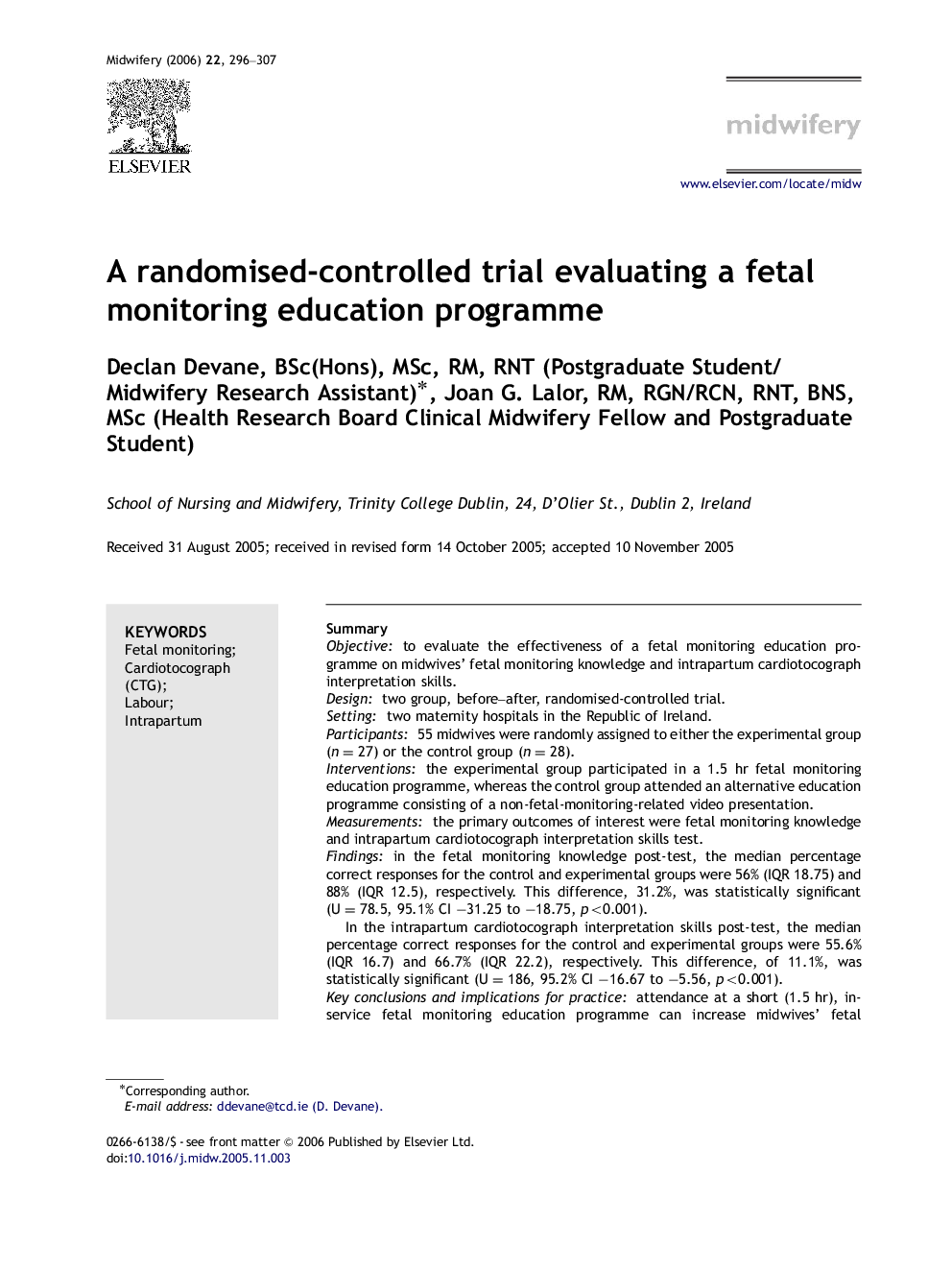| Article ID | Journal | Published Year | Pages | File Type |
|---|---|---|---|---|
| 1085399 | Midwifery | 2006 | 12 Pages |
SummaryObjectiveto evaluate the effectiveness of a fetal monitoring education programme on midwives’ fetal monitoring knowledge and intrapartum cardiotocograph interpretation skills.Designtwo group, before–after, randomised-controlled trial.Settingtwo maternity hospitals in the Republic of Ireland.Participants55 midwives were randomly assigned to either the experimental group (n=27) or the control group (n=28).Interventionsthe experimental group participated in a 1.5 hr fetal monitoring education programme, whereas the control group attended an alternative education programme consisting of a non-fetal-monitoring-related video presentation.Measurementsthe primary outcomes of interest were fetal monitoring knowledge and intrapartum cardiotocograph interpretation skills test.Findingsin the fetal monitoring knowledge post-test, the median percentage correct responses for the control and experimental groups were 56% (IQR 18.75) and 88% (IQR 12.5), respectively. This difference, 31.2%, was statistically significant (U=78.5, 95.1% CI −31.25 to −18.75, p<0.001).In the intrapartum cardiotocograph interpretation skills post-test, the median percentage correct responses for the control and experimental groups were 55.6% (IQR 16.7) and 66.7% (IQR 22.2), respectively. This difference, of 11.1%, was statistically significant (U=186, 95.2% CI −16.67 to −5.56, p<0.001).Key conclusions and implications for practiceattendance at a short (1.5 hr), in-service fetal monitoring education programme can increase midwives’ fetal monitoring knowledge and cardiotocograph interpretation skills. The availability of in-service fetal monitoring education programmes is sporadic, often less than recommended, and is a cause for concern.
